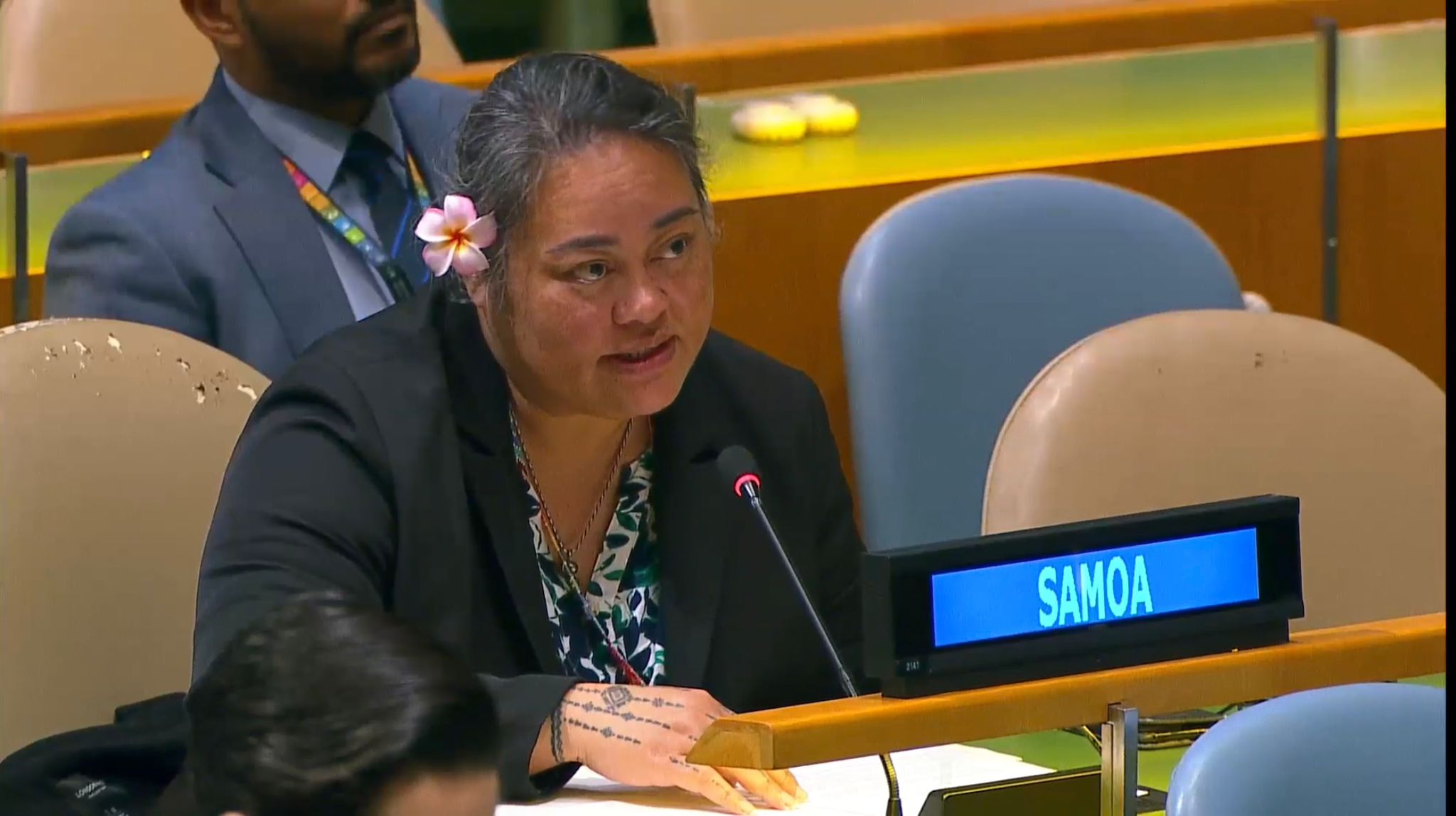STATEMENT
UNGA Sustainability Week 2024 Closing – Global stocktaking marking the completion of the UN Decade of sustainable Energy for All to further accelerate the implementation of SDG7 of the 2030 Agenda for Sustainable Development
April 19, 2024 Matilda Bartley · Deputy Permanent Representative at Permanent Mission of Samoa to the United Nations Download PDFTopic: Sustainable Development

STATEMENT ON BEHALF OF THE ALLIANCE OF SMALL ISLAND STATES (AOSIS) Global stocktaking marking the completion of the UN Decade of sustainable Energy for All to further accelerate the implementation of SDG7 of the 2030 Agenda for Sustainable Development 19 April 2024 General Assembly Hall 10:00 am Thematic Debate 2: Addressing energy’s interlinkages and strengthening means of implementation and partnerships Distinguished Moderator, I have the honor to deliver the following remarks on behalf of the Alliance of Small Island States (AOSIS). Due to our inherent characteristics, including small size and remoteness, small island and low-lying coastal developing states continue to face unique developmental and energy challenges. Our reliance on energy imports for electricity generation and transportation, which can amount to almost 18% of Gross Domestic Product in some cases, compromises the immediate and long-term energy security of SIDS. While SIDS have considerable potential to scale up renewable energy, particularly wind, solar, ocean-based and geothermal energy, the use of such sources remains low. This is largely because high upfront installation costs, lack of infrastructure and limited capacity within SIDS constrains the uptake of renewable energy. This is further exacerbated by the wider restrictive environment that limits SIDS’ access to concessional development finance to foster such energy transitions. It is for this reason that, in the recently approved outcome for the Fourth International Conference, the Antigua and Barbuda Agenda for SIDS, we have prioritized just and inclusive energy transitions through bold and ambitious renewable targets for the next decade. Therefore, addressing the underlying barriers in accessing and mobilizing finance to deploy SIDS-specific technologies and applications will be critical to the fulfilment of those commitments for the next decade. To achieve this and scale up just and resilient energy transitions, SIDS require enhanced policy and de-risking mechanisms and regulatory frameworks to support investments in renewable energies, institutional capacity and project planning and execution, as well as technology transfer. Second, it would be necessary to unlock investments aimed at ensuring project bankability, especially for projects in SIDS, which may be smaller in size. The aim should be to create a pipeline of bankable projects in SIDS that meets their unique needs and priorities and focuses on self-sufficiency. Third, SIDS would also require support for capacity building for local policy-makers, public utilities entities, the private sector and financing institutions to promote greater uptake of renewables. Such an approach would act as a catalyst for renewable energy solutions across multiple sectors, including in agricultural production and transportation. Lastly, and importantly, scaling up partnerships between SIDS and development partners and the United Nations system will be crucial in leveraging the support that is needed to unlock a just and resilient energy transitions. As we look at galvanizing action to accelerate the implementation of SDG7, for SIDS, the future requires the rapid uptake of renewable energy resources. Renewable energy solutions represents an opportunity to meet the energy needs of SIDS, which will also advance climate action for mitigation and adaptation. I thank you.
Sub Topic:
____________________________